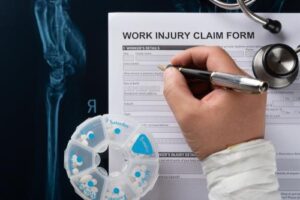
If you have suffered an injury on the job while working in Georgia’s public transportation industry, knowing your rights and benefits under workers’ compensation is important. You can get paid money to cover your injuries and more.
Whether you work for MARTA or a smaller regional public transit system, you have rights under Georgia law to claim workers’ compensation if you are hurt while working. Anyone employed by these companies can claim benefits, even office workers.
If you have any questions not covered here, please contact us for a free legal consultation. Our Atlanta workers’ compensation lawyers can advise you on workers’ compensation laws and help you pursue the full compensation you deserve.
Am I Eligible to File a Workers’ Comp Claim as a Public Transit Worker?
If you were injured on the job while working in Georgia’s public transportation industry, you may be entitled to file a workers’ compensation claim. In general, to be covered under workers’ comp you must have suffered an injury that arose out of and in the scope of your work duties.
Common types of injuries we see in this field include slips and falls, back strains from lifting heavy equipment, traffic accidents, and repetitive stress issues. Psychological conditions like PTSD from passenger altercations may also be covered.
Contact our personal injury lawyers in Atlanta about your workplace accident. We’ll advise if you have a valid claim and guide you through the paperwork filing process with the board. If you’ve already been denied, we can represent you at your appeal hearing.
Get the strong arm
What Damages Does Workers’ Compensation Cover?
If you sustained an injury on the job, workers’ compensation insurance provides coverage for financial losses and medical expenses related to your approved claim. Some common types of damages included are:
- Medical Benefits – All reasonably necessary medical costs are covered, including doctor visits, surgeries, prescriptions, physical therapy, medical equipment, and more.
- Lost Wages – If unable to work due to your injury, you can get a portion of your average weekly wage through wage replacement checks.
- Permanent Impairment – For very serious injuries leaving permanent effects, lump-sum benefits offset lost future wages or bodily function.
- Vocational Rehab – Retraining or education expenses may be covered if the injury prevents returning to your previous position.
- Death Benefits – If a fatal injury occurs on the job, surviving spouses and dependents receive ongoing support.
What Is the Process for Filing a Workers’ Compensation Claim?
Filing a claim for workers’ compensation benefits starts with notifying your employer of the injury within 30 days. Your supervisor should provide you with information to start the claim, but our attorneys can also assist.
You will need to fill out Form WC-1 describing how and when the injury occurred. We can help gather medical records and witness statements to support your account. Once you have everything, the forms and evidence are submitted to your employer’s insurance carrier.
The insurance company has 21 days to accept or deny the claim. If denied, an application can be filed with the State Board of Workers’ Compensation for mediation. We frequently represent clients at these hearings to expedite dispute resolution.
What Should I Do if My Employer Denies My Workers’ Comp Claim?
If your employer contests liability for your claim or denies payment for benefits, do not get discouraged. At John Foy & Associates, we have successfully appealed many denied claims. We will request the carrier provide documentation for why coverage was rejected.
Should the denial stand, we will file an Application for Hearing with the State Board of Workers’ Compensation on your behalf. Our attorneys have extensive experience presenting cases to reinstate eligibility for benefits owed.
Do not accept the verdict of an insurer or your employer about your injuries until you’ve spoken with a workers’ compensation lawyer. Public transit workers in Georgia face many occupational hazards, and employers must pay for the injuries workers suffer.
How Do I Choose a Qualified Workers’ Compensation Lawyer?
Securing the right representation is key to obtaining all benefits provided under Georgia’s workers’ compensation laws. When selecting an attorney, consider the following:
- Experience – Look for a lawyer with a proven track record handling public transit workers’ comp cases from start to resolution. Attorneys at John Foy & Associates have decades of specialized experience in this area.
- Success Rate – A qualified lawyer should be able to share their average percentage of appealed claims, resulting in benefits being approved.
- Communication – You should feel comfortable talking with the attorney about your injury and receive prompt responses to questions.
- Reputation – Check reviews and ask for references from formerly injured clients. Our firm has many references we can show you about our success in workers’ compensation claims.
What Are My Responsibilities When Filing a Workers’ Comp Claim in Georgia?
While your employer and their insurance carrier handle most of the administrative duties, there are some responsibilities you must fulfill as the injured worker filing a claim:
- Notify your employer within 30 days of your on-the-job injury occurring.
- Seek prompt medical attention. Treatment by unauthorized providers could jeopardize your claim.
- Cooperate fully with the investigation of your claim, including interviews and medical exams.
- Keep all medical appointments related to your injury and follow treatment advice.
- Provide any documentation requested, such as time missed from work or out-of-pocket expenses.
- Notify of any changes in mailing address or contact information.
- Consider hiring a lawyer for appeals if your claim is denied.
If you don’t do these, you put your compensation at risk. If you’re a public transit worker in Georgia and need help with a workers’ compensation claim, contact John Foy & Associates for advice about your situation.
404-400-4000 or complete a Free Case Evaluation form





